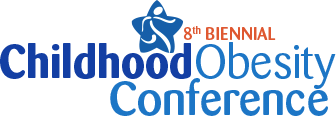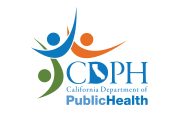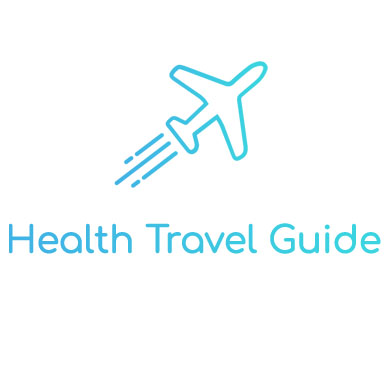Roundtable Proposals
Overview
Back by popular demand, roundtable opportunities will be offered the last morning of the Conference during the buffet breakfast period (Thursday, July 2, 8:00am – 9:30am). Two back-to-back 30 minute sessions will allow for in-depth discussion among a small group, focused on a particular topic. Participant-led roundtables provide a setting to share lessons learned, solicit feedback for current or future initiatives, and exchange ideas, knowledge and resources with colleagues of similar needs/interests. Registered conference attendees may apply to host a roundtable.
If you are interested in hosting a roundtable, please review the following information:
Cost
There is no fee associated with hosting a roundtable. You must however, be a registered attendee of the Conference to apply and host a roundtable.
Host Guidelines
- Roundtable proposals must be received by: Wednesday, April 1, 2015 at 3:00 p.m. (PST)
- Before your proposal is accepted into the conference program, you must pay the Conference registration fee.
- If accepted, detailed guidelines and logistical information will be distributed with letters of acceptance in mid-April 2015.
- Once confirmed, it is your responsibility to come prepared with all materials associated with your roundtable (e.g. printed copies of handouts, guiding questions, business cards, etc.). *Conference organizers will secure a table with 8-10 chairs and a table top sign for you.
- Once confirmed, you must follow and abide by all instructions and deadlines given by the 2015 Childhood Obesity Conference organizers.
Schedule
| 8:00 – 9:30 a.m. | Buffet Breakfast Served – Grand Hall |
| 8:20 – 8:50 a.m. | 1st Session (30 minute session) |
| 8:55 – 9:25 a.m. | 2nd Session (30 minute session) |
Roundtable Format and Tips for a Successful Session
- Each roundtable will be provided a table with 8-10 chairs and identified by a number on a stand in the center of the table (provided by Conference organizers).
- When the session begins, the roundtable host will offer a brief introduction to the topic and facilitate short introductions around the table.
- Each host should come prepared with at least 2-3 guiding questions to help start the conversation and encourage dialogue vs. presenting to the group.
- The purpose of the roundtable is to share ideas regarding common issues and problems. Each roundtable discussion focuses on one general topic to allow for interactive discussions among participants.
- When submitting a roundtable proposal, please include a brief description of the topic to be discussed, a clear and succinct title, and 1-2 key questions/concerns that participants can expect to answer/deliberate among group members.
- Allow for participants to ask questions amongst themselves and offer guidance or re-direction where appropriate.
- Roundtable hosts may also be interested in providing additional materials such as handouts, worksheets, business cards and/or reports on the topic, and are encouraged to do so.
- Note: Roundtables will not be equipped with traditional audio-visual aids as provided by Conference organizers for oral sessions.
- Arrive early with copies of printed materials in-hand (up to 10 copies is recommended).
- Roundtable sessions, by definition, are meant to accommodate a small audience around a single table. Occasionally, larger audiences show up. In the event this happens, encourage attendees to attend the second session of the roundtable or pull up chairs, including borrowing from another table if space allows, and share materials if needed.
- Post-conference: After the event is over, you likely will receive emails or calls from those in attendance. This is an opportunity to build your professional network and sustain the field through collegial exchange. The development of a sign-in sheet can also help assist with staying in contact with your group members post-conference.
Roundtable Topic Examples
- Assemble others in your geographical area doing similar work to discuss cooperation/leveraging opportunities for local obesity prevention efforts (e.g. collective impact strategies, non-traditional partnership challenges and solutions)
- Assemble others in your area of programming to discuss successes and challenges (e.g. school-based settings, clinic-based approaches to obesity prevention)
- Solicit feedback on proposed programs, new efforts or obstacles (e.g. pilot project recommendations, system change approaches to obesity prevention)
- Assemble a “think tank” to brainstorm new and innovative programming ideas (e.g. maximizing social media platforms for health promotion messaging)
- Discuss current national or state legislative efforts impacting childhood obesity programming at the local level (e.g. Child Nutrition and WIC Reauthorization Act, Farm Bill, Affordable Care Act, Covered California)
- Conduct a mini-focus group on proposed messaging/programming (e.g. gather feedback on a pilot project or media campaign)
Roundtables are not suitable for:
- The promotion of organizations products or services
- Criticizing specific organizations' products and/or philosophies
- Organizations/programs that promote unhealthy dieting habits and/or physical activity practices
- Topics that would require more than 15 people in attendance to sufficiently discuss the topic/obtain desired outcomes from a small group setting
Click here to Submit a Roundtable Proposal







